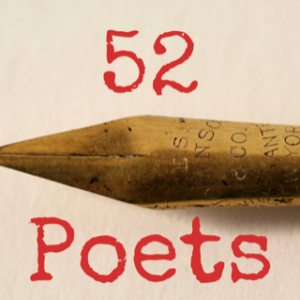
I didn’t study Simon Armitage at school or university and there’s a really good reason for that. He was born in 1963 and is about eight months younger than I am. While I was doing my English degree, he was studying geography. Poetry, like all art, is a constantly growing, developing and renewing aspect of our culture and this means we can continue to discover new writers, artists and musicians throughout our lives. I can’t remember when I first read a Simon Armitage poem but I am delighted to say that it’s a regular part of my work to talk about him and read his poems with my students.
Armitage comes from Yorkshire and still lives there now. He has published many collections of poetry, edited anthologies, written travel books and translated ancient works. He often writes for radio, film and television. Although he has always written, he initially worked as a probation officer. This experience of a more troubled side of life (one I share due to my own previous work in the criminal justice system), in addition to his MA thesis on the effects of television violence, seems to inform much of his work.
In 2019, Armitage became our Poet Laureate, taking over from Carol Ann Duffy. During that time, he has written many pieces commenting on and reflecting the culture and history of the UK, but many of us will think particularly of the death of Queen Elizabeth II in 2022 and her husband the Duke of Edinburgh in 2021. His poems to commemorate those occasions can be found here.
Both students and parents often first encounter Armitage in one of the poetry anthologies for GCSE English literature. The breadth of subject matter can be seen in the contrast between the tender poem, Mother, any distance, here introduced and recited by the poet, and the shocking Remains, about a soldier who shoots a looter, ‘probably armed, possibly not,’ and suffers with painful flashbacks as a consequence. I always encourage my students to read additional poems, other than the one they have to know, as it’s helpful to see a poet addressing a variety of subjects. It’s also great when we can, as with these contemporary and even 20th century poets, hear their voices via audio or video. We are reminded that the poet is/was a real person, not just words on a page!
Personally, I love Mother, any distance, Paper Aeroplane and even Remains – a poem can be both disturbing and satisfying to read. I’d also recommend watching this video of Thank you for Waiting. This poem explores privilege and inequality and their manifestations and effects in society. I’ve also just started reading his translation of Homer’s Odyssey, which he has written as a radio play, originally commissioned by Radio 4. Although it’s a play, I am finding it remarkably readable and very entertaining.
The more I have looked at Simon Armitage’s work in order to talk about it this week, the more I have realised what a vast amount there is. It’s one thing to be able to tutor and teach about a few poems, read a few others for pleasure and watch the odd video. Another thing entirely to try to sum up the work of a prolific writer whose career has been as long as my own!
I hope that you will find among these few comments and pointers some encouragement to dig further into Armitage’s work.